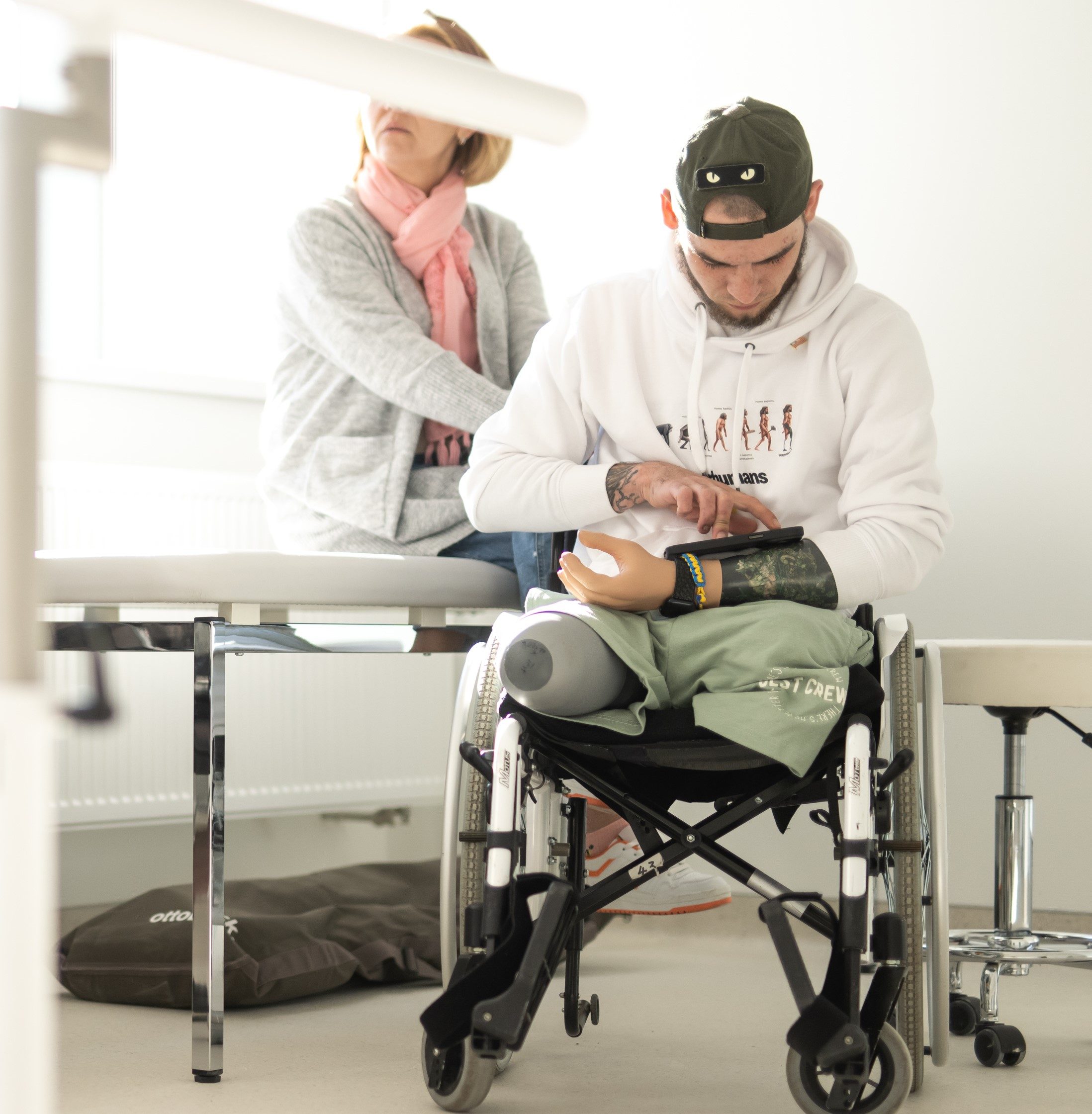Best of Both Worlds
With NHS Trusts increasingly turning to commercial activities to raise revenue, what – and how – can the public and private models learn from each other? We look at three initiatives
The private and public healthcare models have often sat uneasily together, yet many now argue that, with a growing need for funding, it makes sense for Trusts to turn to commercial activities, with income then ploughed back into NHS services.
Last year, a University of York study found that six high-profile NHS Trusts were making between 12% and 53% of their total income from commercial activities in 2021/22. It came from activities including running pharmacies and labs, treating private patients and establishing branches abroad. For example, University Hospitals Birmingham (UHB) NHS Foundation Trust has three commercial divisions: Pharmacy@QEHB, Assure Dialysis services and UHB Facilities Ltd, while Moorfields Eye Hospital Dubai treats private patients in the Middle East, and Great Ormond Street Hospital’s Gulf Office advises families about travelling to London for treatment for their children.1
The half-and-half Trust
Chelsea and Westminster Hospital NHS Foundation Trust is a ‘half-and-half Trust’, offering private healthcare within its main hospital site. Services include fertility and private maternity care, dermatology, bariatric surgery, plastic surgery, and scans and investigations, with most of the consultants spending the majority of their time on NHS work within the Trust, while some work mainly in other NHS Trusts. This means that patients – who include those with private medical insurance, overseas patients and international patients funded through their country’s UK embassy – benefit from the expertise of a leading teaching hospital, combined with hotel-style services and en suite rooms The income is then reinvested to support the Trust’s NHS services.2
The international partnerships
Nick Mathew is a Partner at Q5 healthcare consultancy and an experienced leader of large-scale health transformation around the world. His portfolio of ongoing work includes supporting the design of the UK’s national hospital-building programme, and he led Q5’s work in response to the Covid-19 pandemic with NHS England. He’s also been working closely with a Senior Leader for Private Healthcare at a regional NHS Trust.
The Trust has a 20-year track record of earning commercial income, including a manufacturing and distribution hub, which both generates local jobs and sustains supplies. The Trust is also part of a group franchising NHS expertise and experience to the new healthcare markets abroad.
A chief aim is getting investment into the Trust’s region – for example, in healthcare infrastructure, tech development and other areas around data and AI. The Trust is working with a range of key players in the foreign market, including its Ministry of Health and the leading healthcare provider in the country. It has also partnered with a digital transformation company to pilot a patient experience app in the region. This, the Trust hopes, should improve efficiency and provide a better experience for patients.
Importantly, the partnership is also about pooling knowledge and exchanging ideas. “During the pandemic, there were a lot of profound, innovative developments in models of healthcare in a short space of time,” reflects Nick. “But everybody was firefighting, and nobody was talking to each other. As a company, we realised we could help to connect the global bright spots so that the healthcare systems could learn from each other. The NHS has 76 years of expertise in, for example, clinical practice and trials and the ability to quality assure, and the primary care models developed in the UK are of huge interest to foreign markets.”
However, he stresses that the partners go in as equals. “We’re not approaching it as the experts,” says Nick. “We have a humble attitude. We know where our expertise is, and our international partners know where theirs is. We’re going on the journey together.” And, he points out, the countries innovating aren’t necessarily the ones many would expect: “We can learn so much from healthcare systems in places like India, China and Saudi Arabia. The NHS shouldn’t be embarrassed about leveraging what’s being done elsewhere in places where there’s already investment in solutions for hospitals and primary care clinics.”
Take Saudi Arabia’s virtual hospital, which provides specialised services, such as remote consultations and multidisciplinary committees, throughout the country, supporting 170 hospitals and facilitating prompt specialised care for patients. Much of the clinical governance in setting this up came from the NHS – paired with cutting-edge technology and a will to take risks. “Digital transformation can help the NHS to get back to the level it was, and then improve,” says Nick.
So, what’s needed for Trusts to make progress with international partners? “You need to get to a point where a workforce is ready and able to change,” says Nick. An appetite for taking measured risk is necessary, and the willingness to do a lot of research into key players in the international markets, and their track records – all supported by strict governance and scrutiny. Getting all those involved invested in a shared vision enables progress, adds Nick: “If you look at countries trying to transform their economies and societies, there’s a clear vision of national transformation, which drives QOL indices and KPIs across sectors, as everyone knows what they’re trying to achieve. There must be some strategic vision from the board, and strong support.” So, it’s important to get the whole organisation to buy in, which may involve spending time with stakeholders to explain what you’re trying to achieve and investing the same amount of time with potential international partners – even getting support from local politicians can be important, says Nick.
Ultimately, it comes down to putting the patient at the forefront. People don’t join the NHS for its commercial value, but, says Nick, “The NHS has to be better at monetising its knowledge and expertise if it’s going to deliver for patients – and to look outward more. If you work with partners around the world, it means that when something goes wrong in your system, you have a whole network of people who can help you come to a solution quickly. The most important aspect is sharing – the commercial is almost a by-product.”
The high street healthcare revolution
Nagendra Sanath Kumar trained in musculoskeletal medicine and moved into management roles within the NHS, completing an MBA and King’s Fund training. After 20 years in the NHS, he left in June 2023 to pursue projects related to Health on the High Street and other private initiatives.
Nagendra believes that the NHS could learn important lessons about structure from the private sector, which could revolutionise patient care. “Private hospitals mainly deal with elective procedures, not emergencies. One of the big issues in NHS hospitals is that, because they do both, there are competing priorities. Emergency care will necessarily take priority and elective care inevitably takes a hit.”
Part of the answer comes from the Health on the High Street initiative to move some care away from hospitals, putting services like diagnostics and outpatient care into community settings. “That would free up hospitals to do what they do best – acute care,” says Nagendra. “There’s no reason you can’t have bloods taken or have an x-ray in a community diagnostics centre on the high street. Minor day surgery – any procedure where you could recover in the same day – could be done on the high street, too. If an acute Trust is close by, you could even do more complex procedures there with overnight beds in the community rather than on a traditional hospital ward. This follows the international model of hotel-type beds – you’re not in hospital but you can access all the services while you recover, which is preferable for patients over hospitalisation.”
There are other positives: “Healthcare in community settings improves footfall on the high street, which is good for the local economy and generates jobs, so it has social value,” says Nagendra. The initiative was delayed by the Covid pandemic but community diagnostic centres (CDCs) are now beginning to emerge around the country. Nagendra is involved in several projects. One is a mixed offering of a CDC, due to open in April 2025, and a private hospital with hotel-type beds in 2026.
The NHS could also learn some lessons about visibility from the private sector. “In the private sector, the reporting, accuracy of numbers and commercial viability – including income generated – are all very visible,” says Nagendra. “In the NHS, the visibility is there at board level but not at department level, so the department doesn’t know what it’s making. If you give more visibility on data and informatics on types of cases, productivity and efficiency, teams can make more informed decisions. For example, if you need an additional nursing lead, you can look at your income. If you can’t afford it, you have to think about how you can make it work, which stimulates creativity.” Giving hospitals more autonomy at site level – like private hospitals – would help to empower decision-makers and improve efficiency, as site teams know the details and are able to make faster decisions.
Cultural change is needed, says Nagendra. “The commercial aspect has always been played down in the NHS, with an overemphasis on governance rather than looking at a business-like model.” Patient care is always the priority but, he argues, more commercial sense is an important aspect of that care, as it can help teams to be more efficient. “Everyone who joins the NHS wants to improve patient outcomes. We need a shift in thinking on how we can achieve that.”
FOOTNOTES
1 [ https://www.tandfonline.com/doi/full/10.1080/09540962.2023.2243775#abstract]
2 [ https://chelwestprivatecare.co.uk/our-consultants/]
© Dialogue Content Marketing Ltd 2025.
This article was taken from the November 2024 edition of FORTIS magazine.
FORTIS magazine is a Health Spaces Limited publication. Opinions expressed in FORTIS magazine are not necessarily those of Health Spaces Limited or Dialogue Content Marketing Ltd. Material contained in this publication may not be reproduced, in whole or in part, without prior permission of the publishers. No responsibility can be taken on behalf of advertisements printed in the magazine.
FORTIS magazine – read more
This article was written for the November 2024 edition of FORTIS magazine; a forum for the NHS to share ideas, innovations and case studies. To read the publication in full and access digital copies, visit FORTIS magazine. FORTIS magazine is free for NHS change-makers and leaders and is available as a print or digital copy. FORTIS magazine is managed and owned by Health Spaces Ltd.




